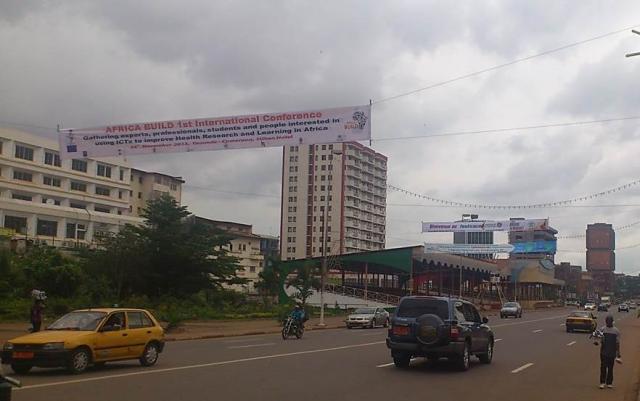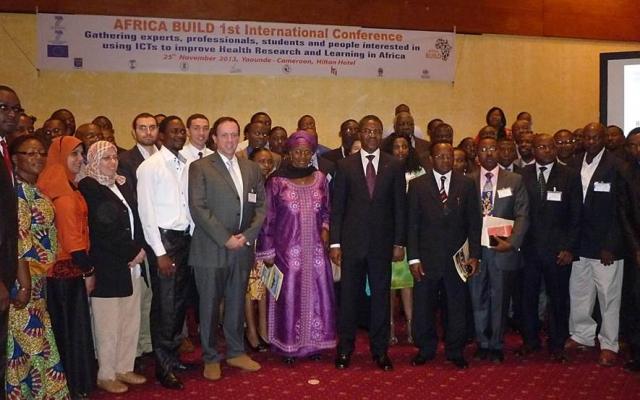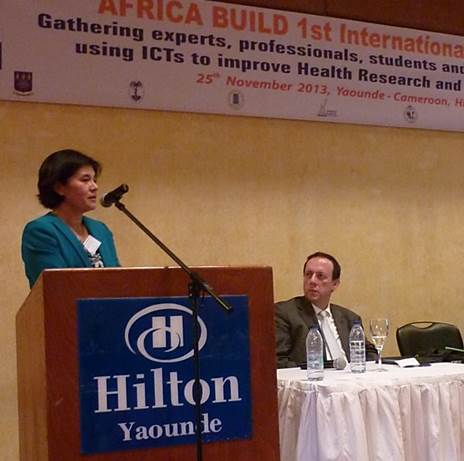AFRICA BUILD organized during the last week its first international conference to gather different stakeholders interested in using ICT’s to improve Health Research and Learning in Africa. Several ministers, practitioners, professors, researchers, experts and students attended to this meeting to discuss about different initiatives working into this niche.

Around 150 attendees participated in this event, mainly from the Catholic University of Bamenda, the Central Hospital of Yaounde and the University of Yaounde I. The Health Minister of Cameroon, André Mama Fouda; and the Minister of Women’s Promotion and the Family, Marie Thérèse Abena Ondoa demonstrated their interest participating in the first sessions of the conference.

Dr. Lucila Ohno-Machado – Associate Dean for Informatics and Technology at the School of Medicine in the University of California San Diego, founding chief of the Division of Biomedical Informatics, and Editor-In-Chief for the Journal of the American Medical Informatics Association (AMIA) – gave the keynote address. Building new biomedical informatics programs: «Experience in developing and developed countries», and showed to the audience her experiences in the creation of a successful biomedical informatics program at the University of Eduardo Mondlane in Mozambique.

During the experts session, BA Housseynow – Professor at Nouakchott University and Minister of Health in Mauritania from 2011 to 2013 – talked about the main obstacles and challenges of eHealth in Africa, giving to the audience interesting data about the penetration of the new technologies at different levels. Then, Lynette Moretlo Molefi – Director at Telemedicine Africa (Pty) Ltd. – presented several case studies of different real eHealth initiatives carried out at South Africa. And finally, Irene Onyancha – Chief of United Nations Economic Commission for Africa Library – explained their efforts on giving access to federated scientific and socio-economic knowledge bases on Africa through their platform called ASKIA.
During the afternoon, few students presented their initial research activities and the conference ended with a round table chaired by the AFRICA BUILD Consortium, in which the audience actively discussed the accessibility to research data and information from the Sub-Saharan countries, showing that one of the health research pillars (Still to be built) is to provide much more interaction between African researchers and research journals in this kind of countries.
